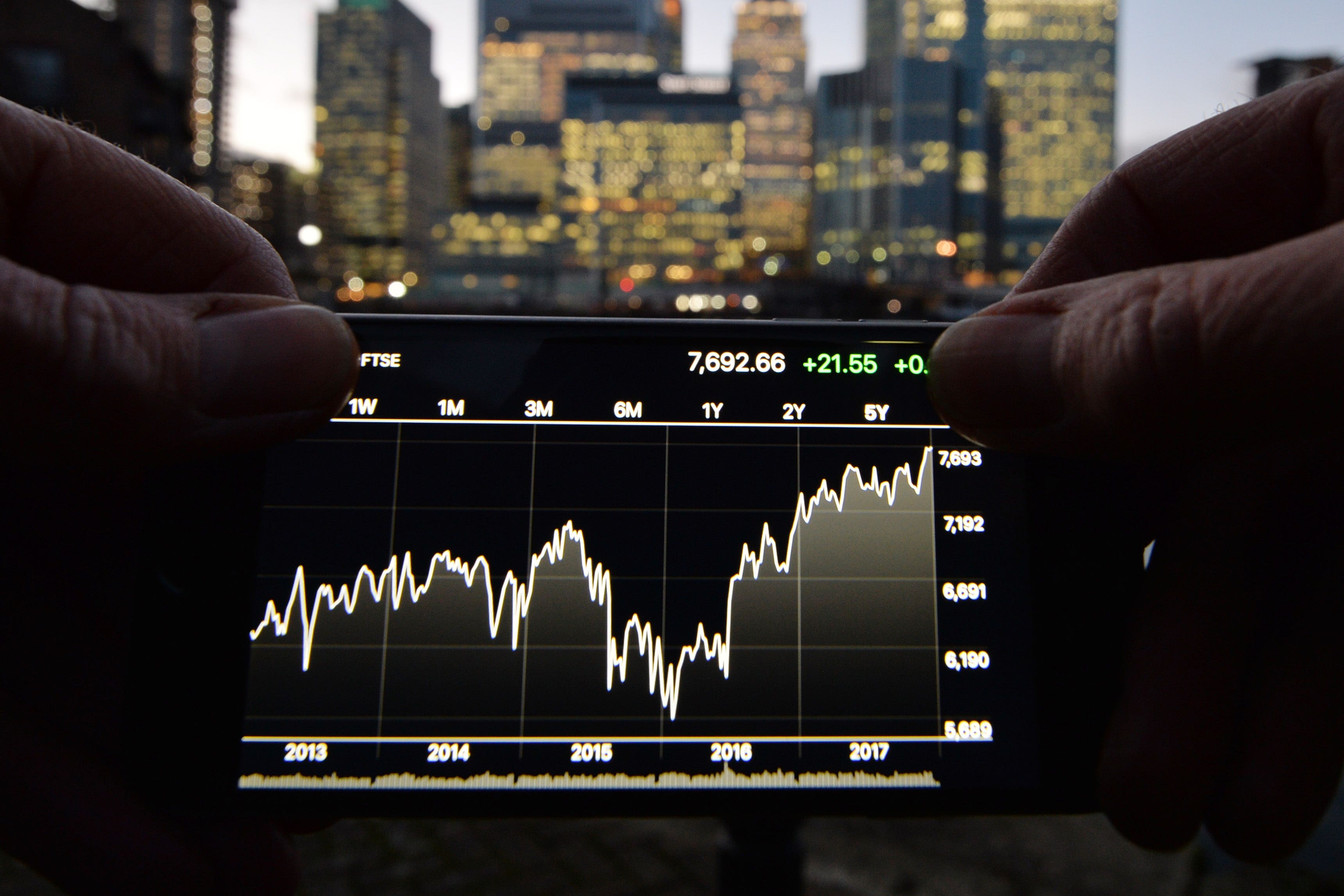Britain’s economy is struggling – so why is the FTSE 100 at a record high?
The share index is booming despite the economy suffering high interest rates and stubborn inflation – and the toxic legacy of Brexit, writes James Moore. But is it the good news story it appears to be?


Britain’s economy is struggling to emerge from a shallow recession, afflicted by sky-high interest rates and persistent inflation. Yet the FTSE 100 is flying, setting fresh records daily.
Those outside the City could be forgiven for wondering what on earth is going on, but there are good reasons for the sudden boom – chiefly, the weak pound.
The FTSE is weighted by its constituents’ market value, so a 1 per cent increase in the price of shares in drug giant AstraZeneca – a business valued at £177bn – will have far more impact than, say, a 20 per cent rise in the price of EasyJet, whose market value is £4bn. Firms at the top of the index – such as Astra Zeneca – are multinational dollar companies for whom the UK economy has little impact on earnings except for the strength of sterling. While these companies’ shares are priced in GBP, their earnings come in USD; when the pound is weak, as it has been lately, those earnings become more valuable and share prices rise.
Subscribe to Independent Premium to bookmark this article
Want to bookmark your favourite articles and stories to read or reference later? Start your Independent Premium subscription today.
Join our commenting forum
Join thought-provoking conversations, follow other Independent readers and see their replies
Comments